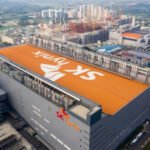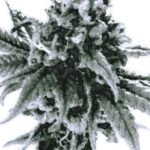South Korea’s SK Telecom Co. announced on Monday that it signed a memorandum of understanding (MOU) with Nokia to commercialize the wired network AI technology optical fiber sensing.
Fiber sensing is a technology that detects various environmental factors that can affect wired network fiber optic cables. When data is transmitted through fiber optic cables, the cable changes sensitively depending on the surrounding environment.
It can detect damage to the wired network or impacts in the vicinity.
The two companies plan to detect sudden events such as earthquakes, strong winds, heavy rain, ocean currents, and cable cuts due to nearby construction, and stabilize the wired network in advance.
They aim to achieve the first domestic commercialization this year by accumulating machine learning-based demonstration data on SK Telecom’s commercial network.
Fiber sensing technology is effective for expanded applications because it can utilize existing wired network infrastructure for data learning without requiring additional equipment.
Unlike some existing wired network monitoring technologies that have limitations in the distance they can cover, fiber sensing has no distance constraints, allowing it to be quickly applied to major backbone networks.
SK Telecom plans to introduce optical fiber sensing across the national wired network and establish an intelligent preemptive response system to minimize damage caused by cable cuts at construction sites.
This is expected to prevent service disruptions caused by unexpected incidents, ensuring uninterrupted service.
By Seung-Woo Lee
leeswoo@hankyung.com















